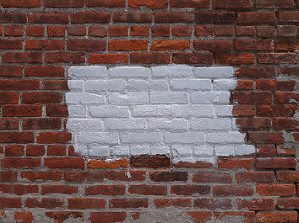Facebook Ireland has found itself subject to a high court order initiated by the President of Djibouti, Ismail Omar Guelleh, to remove what he claims to be offensive posts made about him on the social media site. The orders filed with the Irish court direct Facebook to close the allegedly offensive accounts and disclose to Guelleh the identities, names, telephone numbers email, postal and IP addresses of the users associated with them. Facebook Ireland is the social media company's data processing headquarters for all accounts outside the US and Canada; and the order brought against it by Guelleh goes to show the extent to which the president of the remote East African country is willing to go to suppress negative media attention of his 17-year reign.
Whereas the presiding judge in the Dublin courtroom may have found it bemusing to receive such an order from far away Djibouti, in Djibouti itself, President Guelleh's repression of media freedom and human rights in general is all too familiar. Guelleh ascended to the presidency in 1999 as the hand-picked successor to his uncle, Hassan Gouled Aptidon, who had ruled the tiny desert country in the Horn of Africa since its independence from France in 1977. In 2005, elections were held in which he was the only candidate - winning 100% of the ballots cast, and in 2010 he had the country's constitution amended to remove the two-term presidential limit, allowing him to run for a third term. In elections held the following year Guelleh won with 80% of the vote. Despite announcing at the time that this would be his last run for office, it was not, and on the May 8 he was elected to a fourth term, at the end of which he will have ruled for 21 years.
Even by the standards of certain African countries, blighted by what has been called "third termism", Guelleh's election winning record is enviable. His apparent electoral success is, however, belied by the methods he has employed to achieve it. Although political pluralism is enshrined in Djibouti's constitution, the provision is in effect a dead letter. The 2011 elections were condemned by Human Rights Watch on the grounds that opposition leaders were arrested prior to polling, demonstrations were banned and peaceful protesters violently attacked by police. In the run up to the 2016 vote 19 people were killed in clashes with police at a religious celebration.
The censorship that Guelleh is now trying to export to Facebook would grant the government near total control of information streams. The main newspaper, as well as radio and television stations, are all government run. Attempts by citizens living in exile to broadcast opposition news into the country are regularly blocked with the few independent journalists and human rights activists operating within the country are subjected to harassment and repeated arrest. Despite all of this Djibouti escapes serious condemnation from the international community, indeed, just last year U.S. Secretary of State John Kerry flew to Djibouti where he met with high-level officials and thanked president Guelleh for being a "dependable ally in the fight against terrorism". Djibouti's "free pass" has everything to do with its geo-strategic location and the fact that it plays host to more than 2,000 US troops at Camp Lemonnier, the only US base in Africa.
While the multi-million-dollar-a-year lease of Camp Lemonnier, from which the US conducts its drone operations in the region, affords Guelleh's presidency political legitimacy, it is the package surrounding the agreement to establish a Chinese naval base that promises the kind of development of which the desperately poor country is in dire need. To sweeten the deal, China is pumping hundreds of millions of dollars into improving Djibouti's infrastructure, including a $420 million contract awarded to state-owned China State Construction Engineering Corporation to expand the main port, the building of two new airports to handle increased cargo and passengers, and a vital new rail link with the Ethiopian capital, Addis Ababa. The expansion of the ports is much-needed in a country where most of its food is imported and the improvement in infrastructure should mean that the drought-stricken countryside will have better access to the foodstuffs it needs. Similarly, the new rail connection with Ethiopia, which is due to open this year and cut transport times between the two capitals from several days to under ten hours, will further Djibouti's ambition to become a logistics hub for the East Africa region.
The question for Djibouti then is whether any of this new-found wealth and bargaining power will trickle down to the most needy in society or whether it will accumulate in the off-shore accounts of the president and his cronies. If Guelleh's track record to date is anything to go by, the omens are not good. This is, after all, a man who owns some 80 cars and a $2.24 million apartment in Paris, while Djiboutians sufferfrom a 50% unemployment rate and a life expectancy of 47 years.
So long as President Guelleh is in charge and courted by global powers the fate of a few Facebook accounts will make little difference to the long-suffering people of Djibouti.





